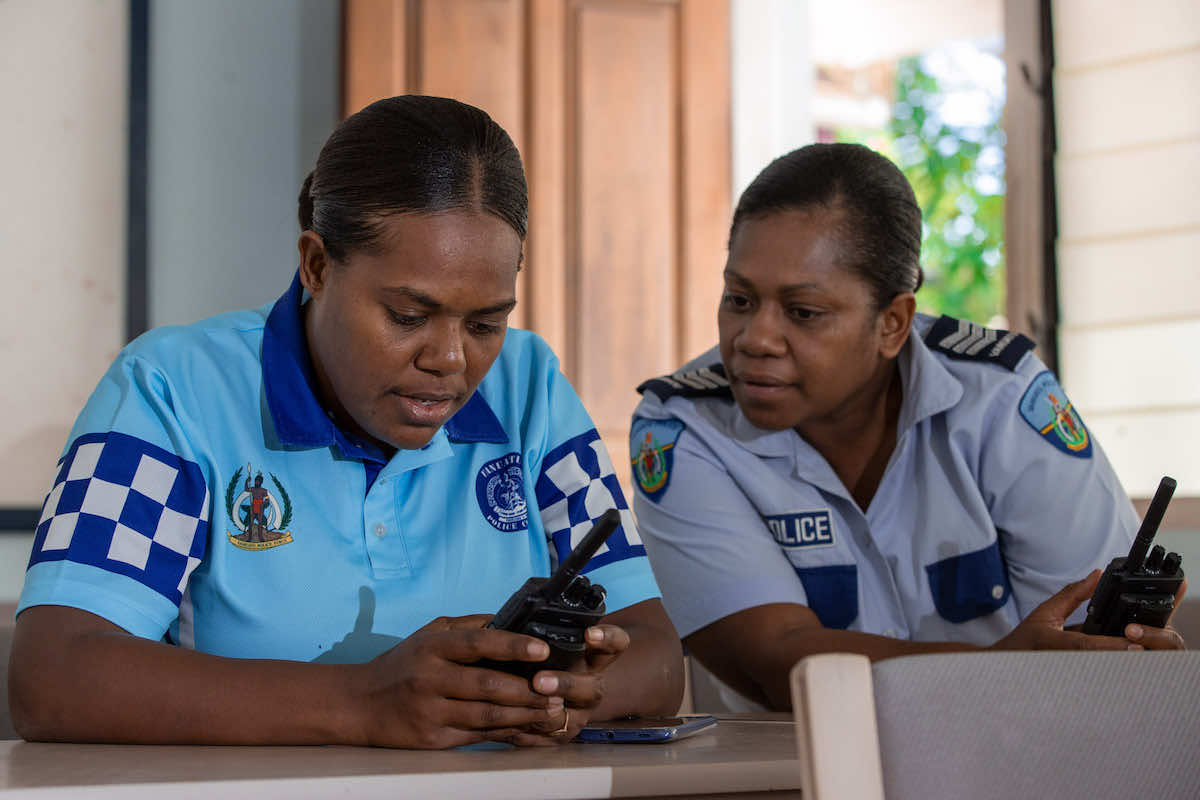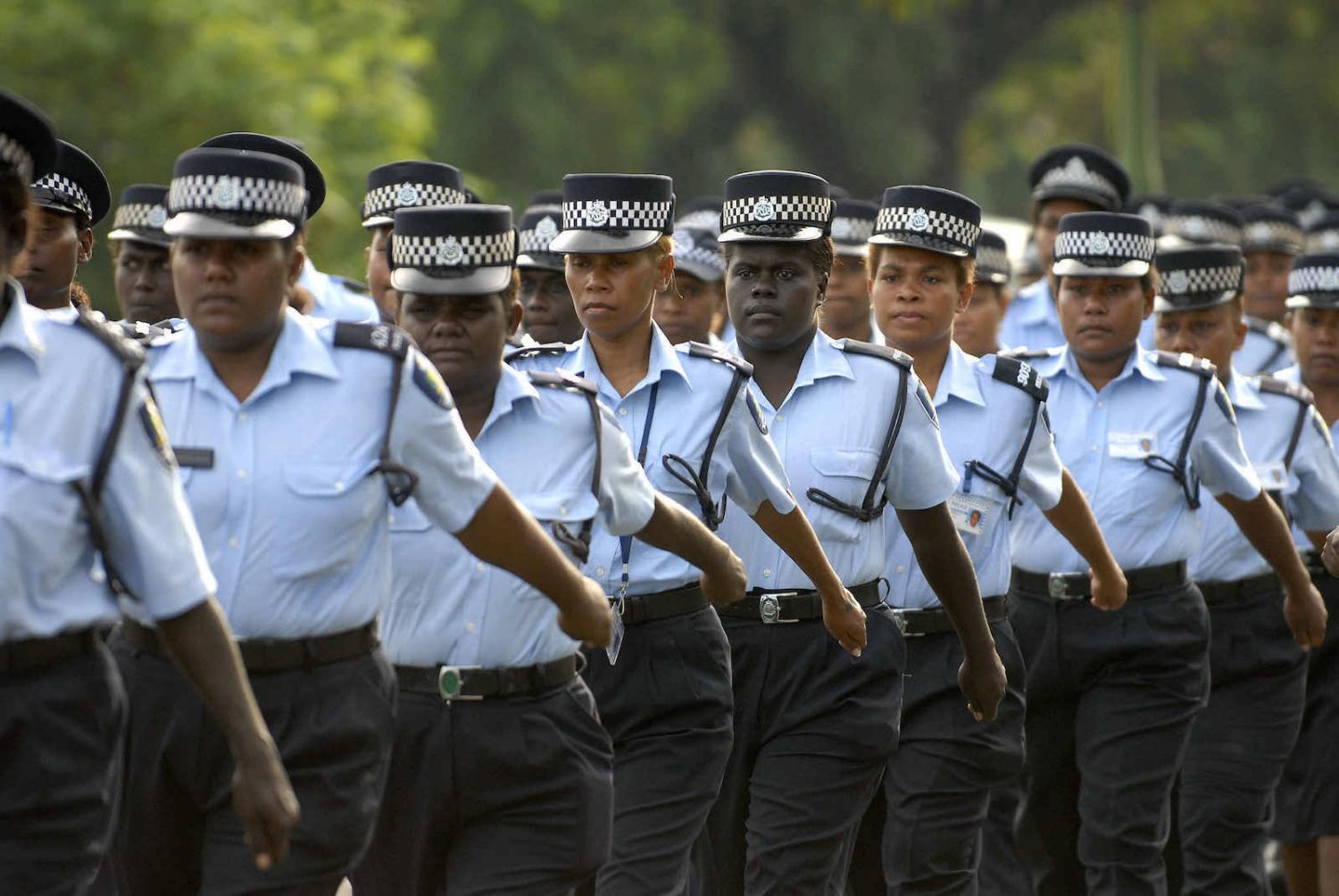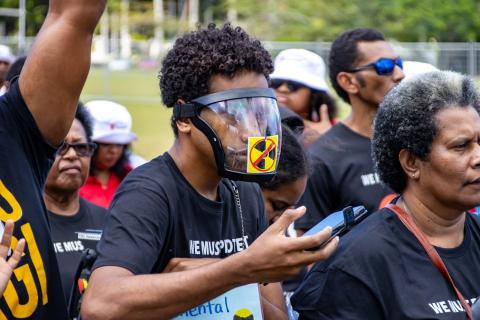China’s pursuit of a Pacific-wide deal with island nations covering policing, security and data communications cooperation leaves the new Labor government in Australia facing a challenge to be the security “partner of choice” in the region. While the full details of these proposed agreements are not yet known, China is unlikely to include programs of work to empower women or increase women’s participation in law enforcement given the limitations on women in these roles in China itself.
Last week on only her fourth day as Australia’s Foreign Minister, Penny Wong addressed the Pacific Islands Forum Secretariat in Fiji committing to listen and work in partnership with island nations. Wong pledged support for security, maritime cooperation and increasing women’s and girls’ participation in all aspects of life. Indeed, the intersection of maritime security, policing and women’s empowerment should form a crucial component of Australia’s soft power influence in the region.
There is an opportunity for women to develop different skill sets relating to digitalisation and new technologies to enable career pathways.
Women are under-represented in law enforcement agencies across the region, and especially so in maritime law enforcement. Women face barriers to accessing this field as a career due to perceptions that working at-sea is not suitable for women, a lack of gender-sensitive infrastructure, and social and cultural norms which shape expectations of gendered behaviour and roles, among others. These influences typically coalesce to constrain women’s participation to gendered roles, for example, office-based or administrative roles.
Yet, even though women in maritime law enforcement are more likely to be working in an office environment, they are often under-represented in roles that require advanced computing or technological knowledge. This is also the result of gender norms and inequality where access to digital devices is lower than for men and boys, and STEM expertise among women and girls has historically been low.

In the coming decades, technologies to enhance shore-based maritime domain awareness activities will become cheaper and more accessible for Pacific governments and law enforcement agencies. Consequently, relying on legacy coastal radar and surface and air patrols to detect, identify, and track vessels at sea will shift to space-based remote-sensing. There will be increased need to expand capabilities in analysing the proliferation of data from these technologies, as well as open-source data.
Subsequently, there is an opportunity for women to develop different skill sets relating to digitalisation and new technologies to enable career pathways which do not necessarily rely on seafaring experience as a requirement for promotion. This contributes to achieving gender equality among Pacific women through an equity lens, recognising the different needs of women. Accordingly, the Indo-Pacific Maritime Domain Awareness (IPMDA) announced at the Quad summit last week must ensure women have access to the training and support provided to upskill in maritime domain awareness to futureproof women’s potential for advancement in this strategically important field.
Cost-effective maritime domain awareness tools that will be available in coming years are a “game changer” for nations and their capabilities in the Asia-Pacific. The uptake of and transition to these emerging technologies will depend on each jurisdiction recognising the opportunities they present, capacity building opportunities and support to access them – an area where Australia can do more. Subsequently, areas that could be targeted for increased training and capacity building for women that are crucial for maritime domain awareness include: skills in data collection and analysis for open source and specific software (e.g., for vessel identification and surveillance); legal and regulatory skills relating to emerging technologies, as well as procurement and private sector engagement.
Wong committed to increasing funding for the Pacific region. It is essential that this funding helps to advance women’s participation in security agencies and maritime law enforcement. To start, the Australian government could look to existing – but underfunded – strategic plans such as the Pacific Islands Chiefs of Police Women’s Advisory Network Strategic Direction 2020–24 and the Regional Strategy for Pacific Women In Maritime 2020–24.
A lack of attention to the gender divide in technology and maritime law enforcement risks exacerbating gender inequality and prospects for women’s inclusion in the future. To counter China’s influence among Pacific island nations and align with Australia’s National Action Plan on Women, Peace and Security, increasing funding for women in law enforcement – both onshore and maritime – is one way Australia can achieve both.


